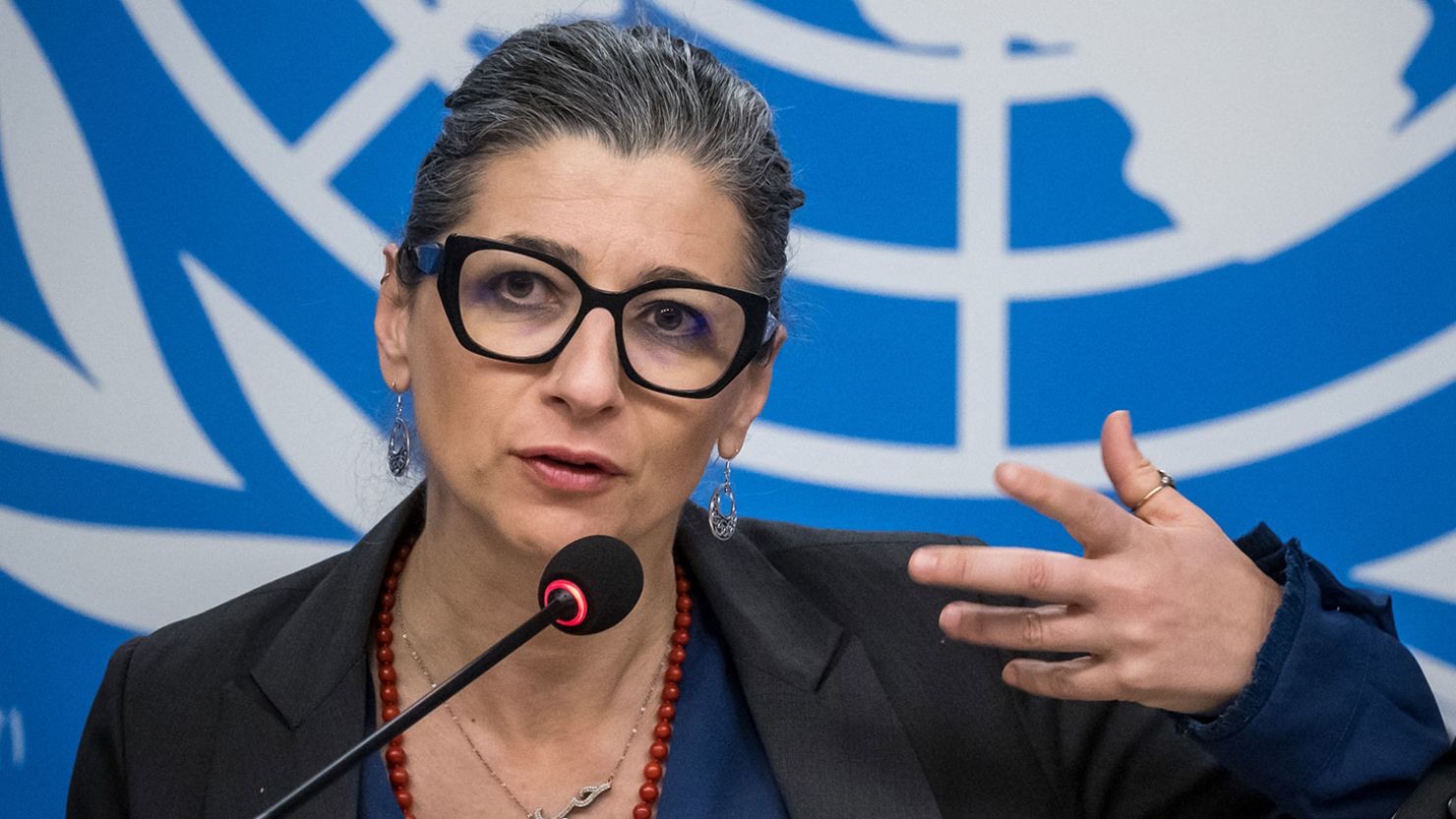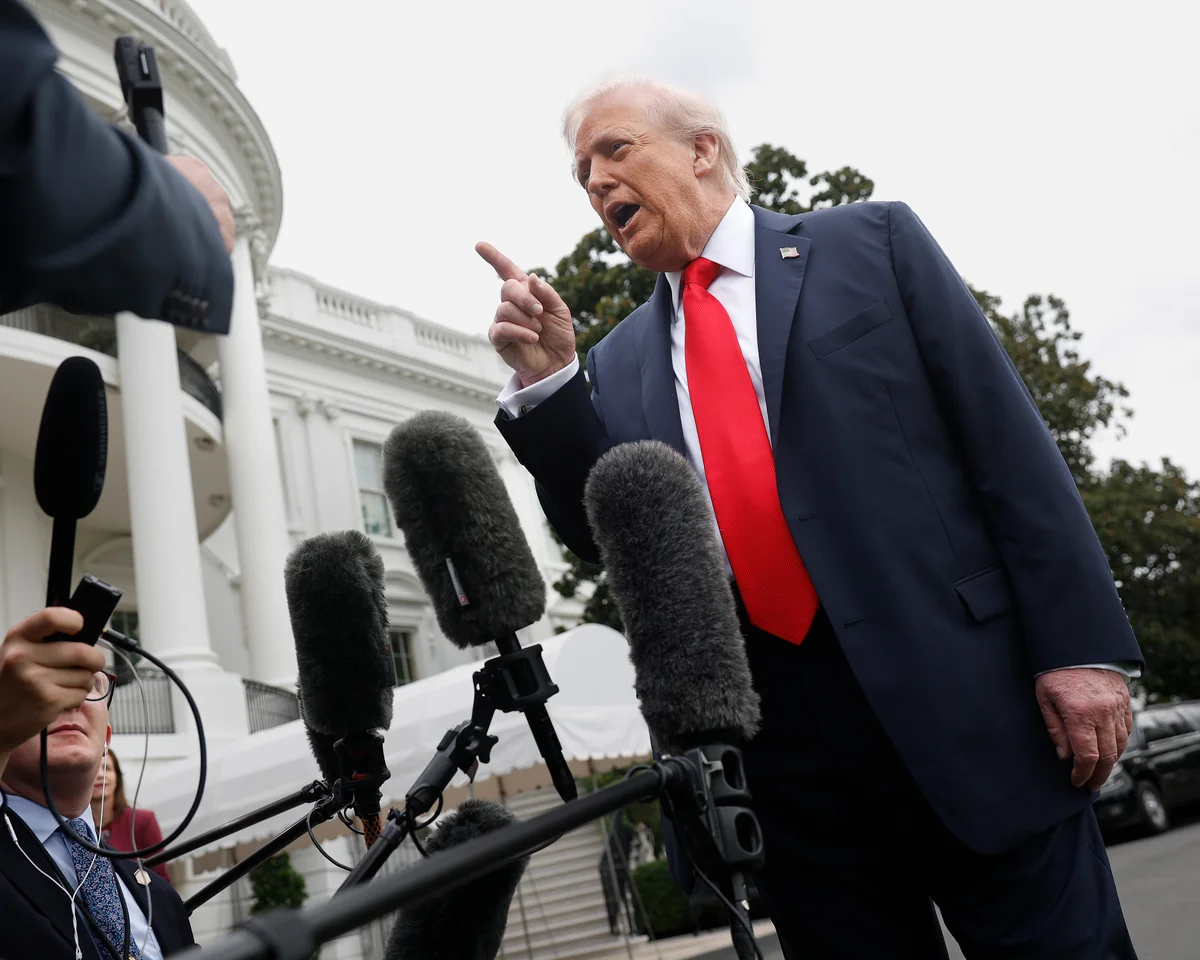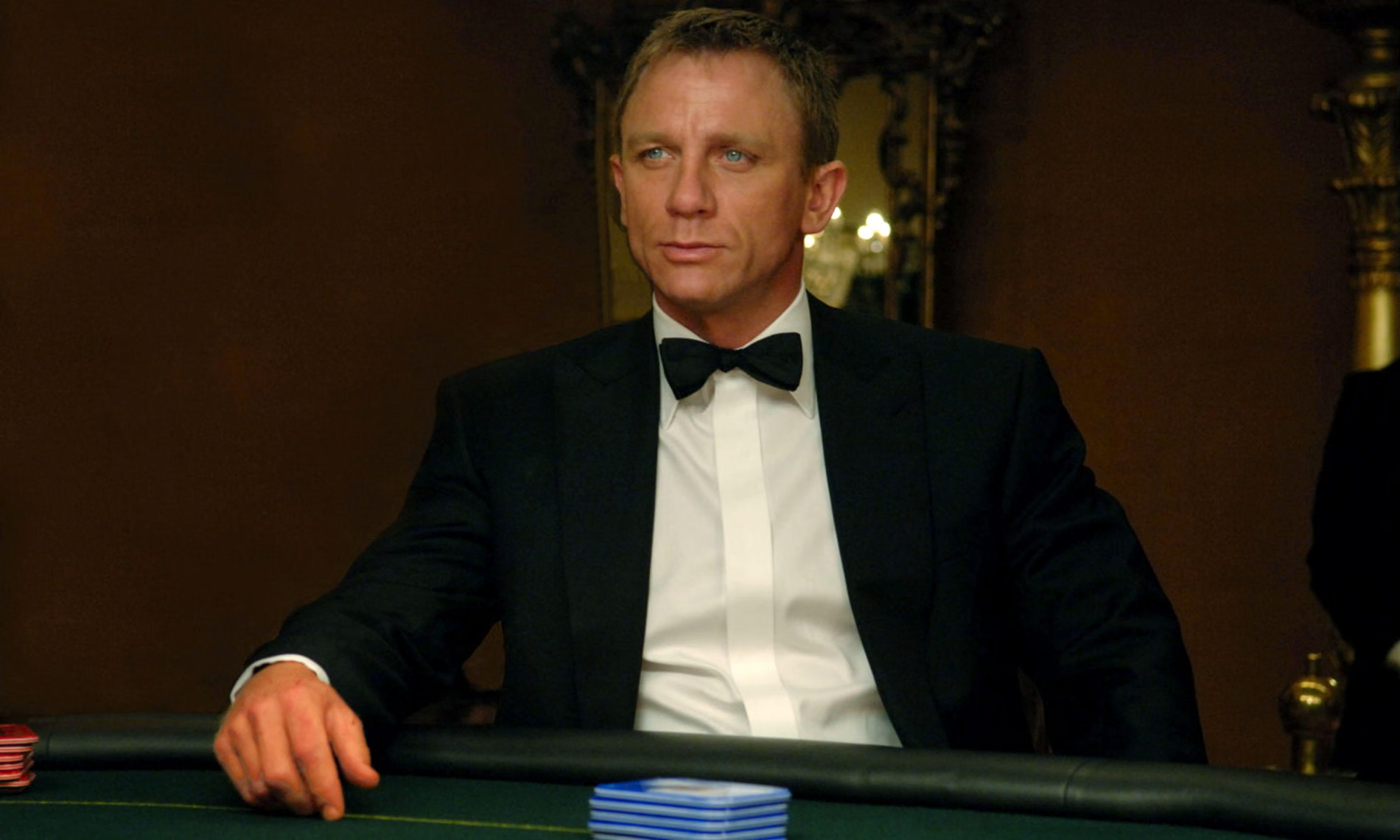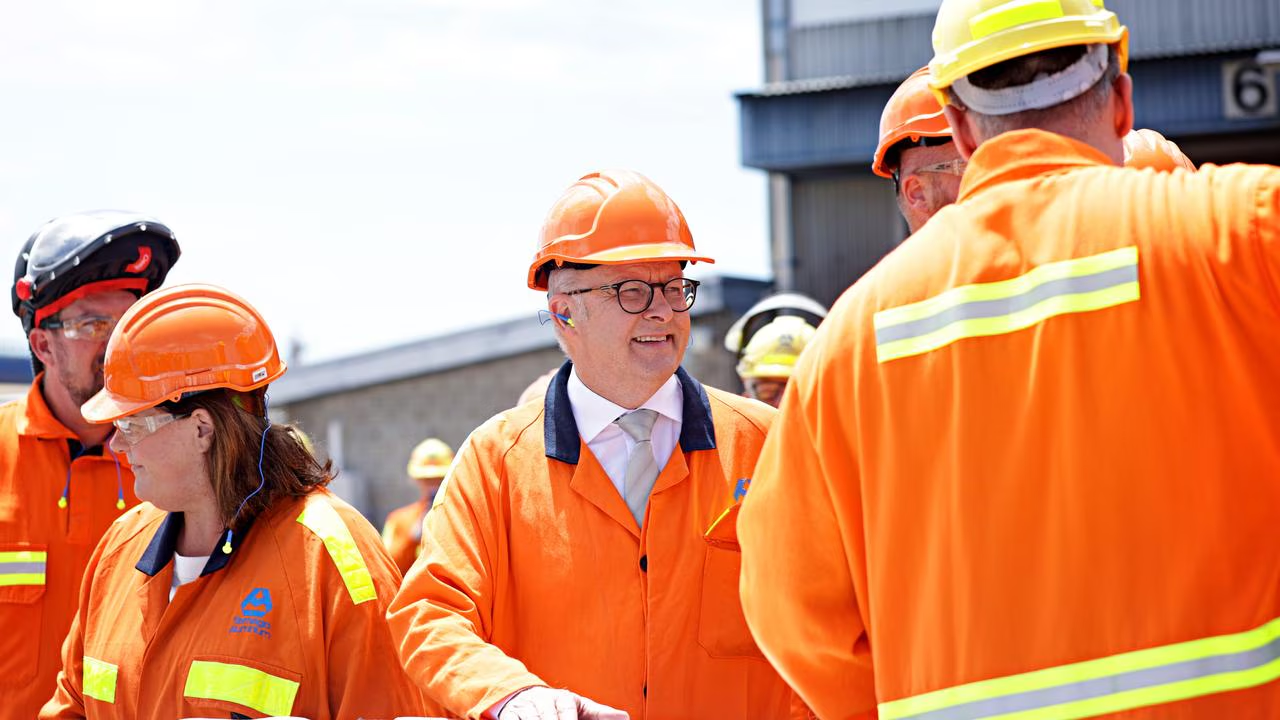Imagine a world leader standing at a podium, promising justice for human rights abuses, yet facing accusations of looking the other way when it comes to one ally. That’s the spotlight on Australian Prime Minister Anthony Albanese right now. A September 2025 UN report accusing Israel of genocide in Gaza has ignited calls from human rights experts, politicians, and activists for Australia to take a tougher stance. They argue Australia’s selective sanctions—hitting Russia hard but tiptoeing around Israel—reveal a glaring double standard. As someone who’s followed global conflicts closely, I’ve seen how these debates stir emotions and shape policy. Let’s dive into this complex issue, exploring the UN findings, Australia’s response, and why this matters for global justice.
What Is the UN Commission’s Genocide Finding?
On September 16, 2025, the UN Independent International Commission of Inquiry on the Occupied Palestinian Territory released a landmark report, concluding that Israel is committing genocide in Gaza. The report, led by former UN human rights chief Navi Pillay, cites four of the five genocidal acts defined by the 1948 Genocide Convention, including mass killings and starvation policies. It’s the strongest UN accusation against Israel to date, sparking global debate.
Key Details of the Report
The 72-page report details Israel’s military actions since October 2023, alleging deliberate targeting of civilians, destruction of healthcare systems, and blocking humanitarian aid, leading to over 60,000 Palestinian deaths. It names Prime Minister Benjamin Netanyahu and other leaders as inciting genocide, citing statements like a 2023 letter invoking a “holy war of annihilation.” Israel rejected the findings as “scandalous” and biased.
Why It’s a Game-Changer
Unlike previous UN reports that stopped short of the genocide label, this one explicitly uses the term, based on rigorous legal analysis. Its release, just before the UN General Assembly in New York, has amplified calls for action, putting pressure on leaders like Albanese to respond decisively.
Why Are Critics Calling Out Australia’s ‘Double Standard’?
Human rights experts argue Australia applies sanctions inconsistently, targeting Russia for its actions in Ukraine but hesitating on Israel despite the UN’s genocide findings. Professor Ben Saul, a UN special rapporteur, told The Guardian that Australia must “put its money where its mouth is” and treat Israel like other law-breaking nations. This perceived hypocrisy has fueled demands for equal accountability.
Comparing Sanctions: Russia vs. Israel
Australia imposed sweeping sanctions on Russia after its 2014 Crimea annexation and 2022 Ukraine invasion, including trade embargoes and asset freezes. In contrast, Australia’s actions against Israel are limited to June 2025 sanctions on two ministers for West Bank violence, not Gaza’s broader crisis. Critics like MP Ed Husic see this as inconsistent with Australia’s human rights stance.
A Personal Reflection
I remember discussing Russia’s sanctions with a friend who lost family in Ukraine’s conflict—those measures felt like justice to her. Yet, reading about Gaza’s devastation, I wonder why similar urgency doesn’t apply. The contrast hits hard, especially when you see images of children like Hind Rajab, killed in Gaza despite waving white flags. It’s tough not to feel the weight of that disparity.
The Gaza Conflict: A Brief Overview
The current Gaza conflict escalated after Hamas’s October 7, 2023, attack on Israel, killing 1,200 and taking 251 hostages. Israel’s response, a massive military campaign, has killed nearly 65,000 Palestinians, mostly civilians, and displaced millions, per Gaza health officials. The UN report cites starvation, destroyed hospitals, and targeted attacks as evidence of genocidal intent.
The Human Toll
The report details harrowing cases: 18,430 children and 9,735 women killed, snipers targeting toddlers, and famine in northern Gaza. A global hunger monitor confirmed famine conditions in 2025, with aid blockages exacerbating starvation. These numbers aren’t just stats—they’re stories of families torn apart.
Israel’s Defense
Israel insists it’s fighting Hamas, not Palestinians, and denies genocide, calling the UN report “distorted” and Hamas-driven. Its foreign ministry argues the October 7 attack was an attempted genocide, justifying its self-defense. Yet, the report’s evidence of systematic civilian harm challenges this narrative.
Australia’s Current Stance on Israel
The Albanese government has voiced concern over Gaza, with Foreign Minister Penny Wong calling the situation “beyond the world’s worst fears.” Australia supports the International Court of Justice (ICJ) and International Criminal Court (ICC), which are investigating Israel’s actions. In August 2025, Albanese announced Australia would recognize Palestinian statehood at the UN General Assembly, joining the UK, Canada, and France.
Limited Actions Taken
In June 2025, Australia joined allies in sanctioning two Israeli ministers for inciting West Bank violence, imposing travel bans and financial restrictions. However, no sanctions target Gaza’s crisis or senior leaders like Netanyahu, despite ICC arrest warrants issued in 2024. Critics argue this falls short of addressing the UN’s genocide findings.
Political Pressure at Home
Crossbench politicians like Senator David Pocock and Labor MP Ed Husic are pushing for stronger measures, including sanctions on Netanyahu’s government. Pocock argues Australia has a legal duty to prevent genocide, citing its history of opposing human rights abuses. This pressure reflects growing public outrage, amplified by posts on X demanding accountability.
Comparing Australia’s Approach to Other Nations
How does Australia’s response stack up globally? Here’s a comparison:
| Country | Actions Against Israel | Sanctions | Recognizes Palestine |
|---|---|---|---|
| Australia | Sanctions on two ministers (2025) | Limited | Yes (2025) |
| UK | Sanctions on settlers, arms export review | Moderate | Yes (2025) |
| Canada | Sanctions on settlers, aid to Gaza | Moderate | Yes (2025) |
| Norway | Sanctions on ministers, divestment calls | Strong | Yes (2014) |
Norway’s proactive sanctions and early Palestinian recognition contrast with Australia’s cautious approach, fueling accusations of a double standard.
Pros and Cons of Stronger Action Against Israel
Taking a tougher stance on Israel could align Australia with its human rights commitments but carries risks. Here’s a breakdown:
Pros
- Upholds International Law: Sanctions signal commitment to the Genocide Convention and ICJ rulings.
- Consistency: Aligns Israel policy with actions against other violators like Russia.
- Global Leadership: Strengthens Australia’s moral credibility on human rights.
- Public Support: Addresses growing domestic calls for justice, as seen on X.
Cons
- Diplomatic Fallout: Strains ties with Israel, a key U.S. ally, risking trade or security impacts.
- Economic Costs: Trade embargoes could affect Australian businesses linked to Israel.
- Political Division: Risks backlash from pro-Israel groups within Australia.
- Legal Delays: ICJ rulings may not come until 2027, complicating immediate action.
The Role of Attribution Science in the Debate
Attribution science, which links specific actions to outcomes, underpins the UN’s genocide claim. The report cites Israel’s blockade of aid, destruction of hospitals, and targeted killings as deliberate acts to destroy Palestinians as a group. This science, also used in climate accountability, strengthens calls for sanctions by providing evidence of intent.
A Local Example
I recall a climate activist friend in Sydney explaining how attribution science holds polluters accountable for floods in Australia. Similarly, the UN’s evidence—detailing 60,199 deaths and famine—makes it hard to dismiss Gaza’s crisis as collateral damage. It’s a gut punch to see science lay bare such suffering.
People Also Ask (PAA)
What is the UN’s genocide finding against Israel?
The UN Commission of Inquiry’s September 2025 report found Israel committed four of five genocidal acts in Gaza, including mass killings and starvation, with intent to destroy Palestinians as a group.
Why is Australia accused of a double standard?
Critics argue Australia sanctions Russia heavily but hesitates on Israel despite genocide allegations, showing selective enforcement of international law.
Has Australia sanctioned Israel?
Yes, in June 2025, Australia sanctioned two Israeli ministers for West Bank violence, but no measures address Gaza’s crisis or senior leaders.
What can Australia do to stop genocide in Gaza?
Australia could impose sanctions on Israeli leaders, halt arms exports, and join ICJ proceedings to pressure Israel to comply with international law.
How to Stay Informed and Take Action
Want to follow this issue or make a difference? Here’s how:
- Read Trusted Sources: Visit The Guardian or UN News for updates on Gaza and Australia’s response.
- Support Advocacy Groups: Organizations like Amnesty International Australia (amnesty.org.au) push for accountability.
- Engage Politically: Contact your MP or join protests to demand sanctions, as urged by posts on X.
- Learn About International Law: Explore the 1948 Genocide Convention at OHCHR to understand legal obligations.
Best Tools for Human Rights Advocacy
While awaiting policy shifts, use these tools to advocate for justice:
- Amnesty International: Offers campaigns and petitions to pressure governments on Gaza. (amnesty.org)
- Human Rights Watch: Provides reports and action alerts on global conflicts. (hrw.org)
- Change.org: Create or sign petitions to influence Australian policy on Israel.
FAQs
1. What does the UN report say about Israel’s actions in Gaza?
The report accuses Israel of genocide, citing mass killings, starvation, and destruction of healthcare systems as deliberate acts to destroy Palestinians, based on the 1948 Genocide Convention.
2. Why is Australia hesitant to sanction Israel?
Australia’s cautious approach may stem from diplomatic ties with Israel, a U.S. ally, and concerns about economic or political fallout, despite supporting the ICJ and ICC.
3. What sanctions has Australia imposed on Israel?
In June 2025, Australia sanctioned two Israeli ministers for inciting West Bank violence, but no actions target Gaza’s crisis or senior leaders like Netanyahu.
4. How can Australia address the UN’s genocide findings?
Australia could impose sanctions on Israeli leaders, halt arms exports, join ICJ proceedings, and push for a ceasefire, as urged by experts like Navi Pillay.
5. Is the UN report legally binding?
No, the UN Commission’s findings are not binding but carry weight with the ICJ and ICC, influencing global calls for accountability.
Conclusion: A Call for Consistency
The UN’s genocide finding has put Australia’s foreign policy under a microscope. Albanese’s government faces a choice: align with its human rights rhetoric by taking bold action against Israel or risk accusations of complicity through inaction. The stories of Gaza’s victims—like 5-year-old Hind Rajab—demand more than words. As Australians rally on X and experts like Ben Saul call for fairness, the pressure is on to end the double standard. This isn’t just about Gaza; it’s about whether Australia can lead with moral courage in a world watching closely. Stay engaged, because justice starts with us.




